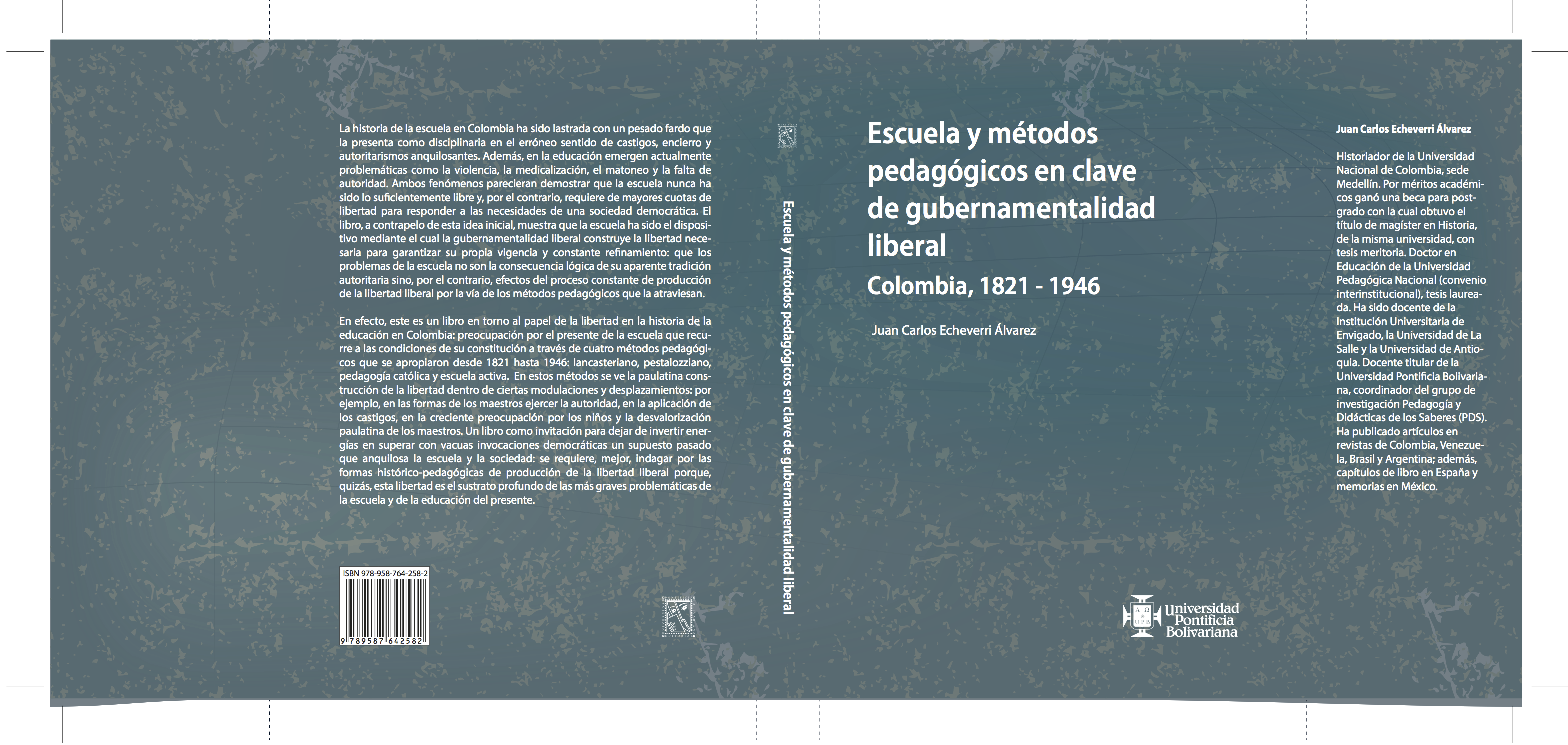The school history in Colombia has been burdened with a heavy burden that comes as the missense disciplinary punishment, confinement and ankylosing authoritarianism. On the other hand, the school currently emerging issues such as violence, medicalization, bullying and lack of authority. Both phenomena seem to prove that the school has never been free enough and, on the other hand, requires greater levels of freedom to meet the needs of a democratic society. The book counter to this initial idea, showing that the school was the device by which the liberal Governmentality builds the freedom to ensure their own force and constant refinement: that the school problems are not the logical consequence of their apparent authoritarian tradition but, on the contrary, the effects of constant production process of liberal freedom by means of teaching methods that cross.
It is a book about the role of freedom in the history of education in Colombia: concern for the present school which uses the terms of its constitution through four teaching methods appropriated from 1821 to 1946: Lancastrian, Pestalozzi, Catholic Education and Active School. In these methods is the gradual construction of freedom within certain modulations and movements: for example, in the forms of teachers exercising authority in the application of penalties, the growing concern for children and the gradual devaluation of teachers. A book as an invitation to stop investing energy in democratic vacuous invocations overcome a past course stiffens school and society requires better, inquire by pedagogical historical production forms the liberal freedom that, perhaps, this freedom It is the deep of the most serious problems of the school and the education.


